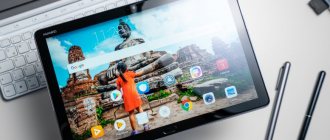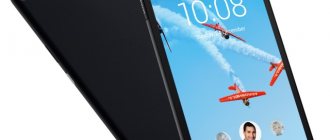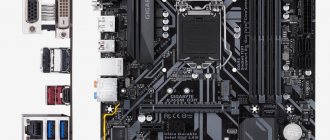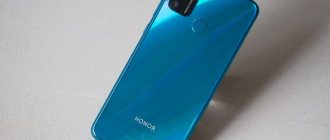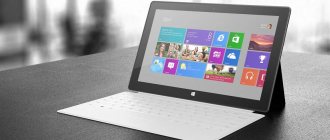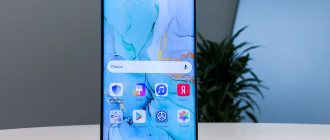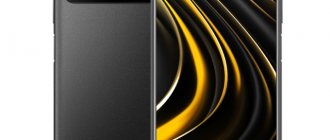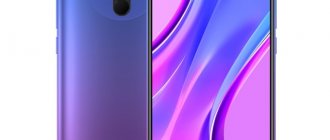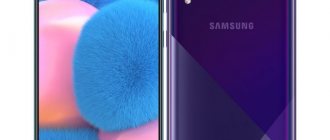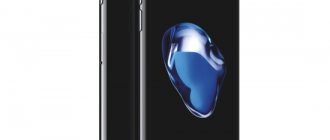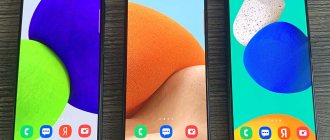In this review, we will look at the best Huawei tablet models. Let's get acquainted with their characteristics, find out how much they cost, consider their positive and negative sides. We will select the optimal models in terms of price/quality ratio.
At the end of the article, more than 220 users gave their assessment of which tablet is the best. I hope this helps you make the right choice. Thank you very much for your ratings and for helping other users.
Tablet rating
#4 of 20 Best Tablets
244 votes
- Total Huawei tablets : 148 models.
- Price: from 4,500 to 54,000 rubles.
- New items: none.
Features, pros and cons of Huawei tablets
Huawei MediaPad M2 tablet
Characteristics
| System | |
| Type | tablet |
| operating system | Android 5.1 |
| CPU | HiSilicon Kirin 930 2000 MHz |
| Number of Cores | 8 |
| Built-in memory | 64 GB |
| RAM | 3 GB DDR3 |
| Memory card slot | yes, microSD |
| Screen | |
| Screen | 10.1″, 1920×1200 |
| Widescreen display | Yes |
| Type | TFT IPS, glossy |
| Touchscreen | capacitive, multi-touch |
| Pixels per inch (PPI) | 224 |
| Video processor | Mali-T628 MP6 |
| Wireless connection | |
| Wi-Fi support | yes, Wi-Fi 802.11ac, WiFi Direct |
| Bluetooth support | yes, Bluetooth 4.0 |
| SIM card type | micro SIM |
| mobile connection | 3G, HSPA+, GSM900, GSM1800, GSM1900, LTE (Band 1, 3, 7, 8, 20, 38, 39, 40, 41) |
| Camera | |
| Rear camera | yes, 13 megapixels |
| Rear camera features | flash, autofocus |
| Front-camera | yes, 5 megapixels |
| Sound | |
| Built-in speakers | yes, stereo sound |
| Built-in microphone | There is |
| Functionality | |
| GPS | yes, with A-GPS support |
| GLONASS | There is |
| Automatic screen orientation | There is |
| Sensors | accelerometer, gyroscope, compass, light sensor |
| Vibration motor | There is |
| Format support | |
| Audio | AAC, WAV, OGG, FLAC, APE, MP3 |
| Video | MPEG-4, MKV, H.264, H.263 |
| Connection | |
| To computer via USB | There is |
| External devices via USB | optional |
| Audio/headphone output | yes, 3.5 mm |
| Headsets | There is |
| Nutrition | |
| Battery capacity | 6660 mAh |
| Dimensions and weight | |
| Dimensions (LxWxD) | 240×172.7×7.4 mm |
| Weight | 500 g |
| Additional Information | |
| Housing material | metal |
| Fingerprint scanner | There is |
| Equipment | tablet, USB cable, headset, stylus, AC adapter, instructions |
| Peculiarities | support for MIDI, 3GP, 3G2, AVI, VP8, XVID formats; multi-touch up to 10 touch points; two speakers for high and low frequencies respectively |
Advantages
- good screen.
- sound.
- fingerprint scanner.
- good battery.
- The build quality is decent.
- smart energy saving system.
- Wacom stylus pen.
Huawei MediaPad T1 tablet
Characteristics
| System | |
| Type | tablet |
| operating system | Android 4.4 |
| CPU | Qualcomm Snapdragon MSM8916 1200 MHz |
| Number of Cores | 4 |
| Built-in memory | 16 GB |
| RAM | 1 GB |
| Memory card slot | yes, microSDXC, up to 32 GB |
| Screen | |
| Screen | 9.6″, 1280×800 |
| Widescreen display | Yes |
| Type | TFT IPS, glossy |
| Touchscreen | capacitive, multi-touch |
| Pixels per inch (PPI) | 157 |
| Video processor | Adreno 306 |
| Wireless connection | |
| Wi-Fi support | yes, Wi-Fi 802.11n |
| Bluetooth support | yes, Bluetooth 4.0 |
| Working in cell phone mode | There is |
| mobile connection | 3G, LTE |
| Camera | |
| Rear camera | yes, 5 megapixels |
| Rear camera features | flash, autofocus |
| Front-camera | yes, 2 megapixels |
| Sound | |
| Built-in speaker | yes, mono sound |
| Built-in microphone | There is |
| Functionality | |
| GPS | yes, with A-GPS support |
| GLONASS | There is |
| Automatic screen orientation | There is |
| Sensors | accelerometer, gyroscope, proximity sensor, light sensor |
| Connection | |
| To computer via USB | There is |
| External devices via USB | optional |
| Audio/headphone output | yes, 3.5 mm |
| Headsets | There is |
| Nutrition | |
| Working hours | 8 hours |
| Standby time | 300 h |
| Battery capacity | 4800 mAh |
| Dimensions and weight | |
| Dimensions (LxWxD) | 249x150x8.3 mm |
| Weight | 450 g |
| Additional Information | |
| Housing material | metal |
Advantages
- high-quality screen with a wide viewing angle.
- loud clear sound.
- The battery lasts a long time.
- affordable price.
- availability of 4G.
Flaws
- The back wall gets hot when playing games.
- Not the best location for SIM cards and memory cards.
- There is no turning on the screen with two touches of a finger.
- slippery body.
- low screen resolution.
Huawei Mediapad T3 tablet
Characteristics
| System | |
| Type | tablet |
| operating system | Android 7.0 |
| CPU | Qualcomm 1400 MHz |
| Number of Cores | 4 |
| Built-in memory | 16 GB |
| RAM | 2 GB DDR3 |
| Memory card slot | yes, microSDXC, up to 128 GB |
| Screen | |
| Screen | 9.6″, 1280×800 |
| Widescreen display | Yes |
| Type | TFT IPS, glossy |
| Touchscreen | capacitive, multi-touch |
| Pixels per inch (PPI) | 170 |
| Wireless connection | |
| Wi-Fi support | yes, Wi-Fi 802.11n, WiFi Direct |
| Bluetooth support | yes, Bluetooth 4.0, A2DP |
| mobile connection | 3G, LTE (Band 1, 2, 3, 5, 6, 7, 8, 19, 20, 34, 38, 39, 40, 41) |
| Camera | |
| Rear camera | yes, 5 megapixels |
| Rear camera features | autofocus |
| Front-camera | yes, 2 megapixels |
| Sound | |
| Built-in speaker | There is |
| Built-in microphone | There is |
| Functionality | |
| GPS | yes, with A-GPS support |
| GLONASS | There is |
| Automatic screen orientation | There is |
| Sensors | accelerometer |
| Format support | |
| Audio | AAC, WAV, OGG, FLAC, MP3 |
| Video | MKV, MOV, MP4 |
| Connection | |
| To computer via USB | There is |
| External devices via USB | optional |
| Audio/headphone output | yes, 3.5 mm |
| Nutrition | |
| Battery capacity | 4800 mAh |
| Dimensions and weight | |
| Dimensions (LxWxD) | 230x160x8 mm |
| Weight | 460 g |
| Additional Information | |
| Housing material | metal |
| Peculiarities | Qualcomm MSM8917 processor |
Advantages
- price.
- quality.
- speed of work.
- The picture quality is excellent.
- doesn't slow down.
Flaws
- easily soiled screen.
- no cover.
Huawei Mediapad M3 Lite tablet
Characteristics
| System | |
| Type | tablet |
| operating system | Android 7.0 |
| CPU | Qualcomm |
| Number of Cores | 8 |
| Built-in memory | 32 GB |
| RAM | 3 GB |
| Memory card slot | yes, microSDXC, up to 128 GB |
| Screen | |
| Screen | 10.1″, 1920×1200 |
| Widescreen display | Yes |
| Type | TFT IPS, glossy |
| Touchscreen | capacitive, multi-touch |
| Pixels per inch (PPI) | 359 |
| Wireless connection | |
| Wi-Fi support | yes, Wi-Fi 802.11ac |
| Bluetooth support | yes, Bluetooth 4.1 |
| mobile connection | 3G, LTE |
| Camera | |
| Rear camera | yes, 8 megapixels |
| Rear camera features | autofocus |
| Front-camera | yes, 8 megapixels |
| Sound | |
| Built-in speakers | yes, stereo sound |
| Built-in microphone | There is |
| Functionality | |
| GPS | yes, with A-GPS support |
| GLONASS | There is |
| Automatic screen orientation | There is |
| Sensors | accelerometer, gyroscope, compass, light sensor |
| Format support | |
| Video | MKV, MP4 |
| Connection | |
| To computer via USB | There is |
| External devices via USB | optional |
| Audio/headphone output | yes, 3.5 mm |
| Headsets | There is |
| Nutrition | |
| Battery capacity | 6660 mAh |
| Dimensions and weight | |
| Dimensions (LxWxD) | 241.3×171.5×7.5 mm |
| Weight | 310 g |
| Additional Information | |
| Housing material | metal |
| Peculiarities | Qualcomm MSM8940 processor |
Advantages
- good screen.
- quick settings.
- minimum applications.
How to choose a tablet?
When choosing a tablet, each buyer focuses on different parameters of the device. Some people value a beautiful and large screen, while others care about portability and ease of transportation. Despite the different reasons for buying tablets, all models are characterized by the same parameters: “filling”, size, material and sound quality.
Specifications
Inexperienced buyers often get the impression that the more powerful the tablet components, the better it is. In general, everything is correct, the best devices are high-performance devices, but they are also expensive. The question is whether all this power is needed for the tasks at hand. More often than not, it makes sense to balance power and cost based on your goals. For example, for documentation and reporting, there is no point in buying an expensive model.
Several main groups of tablets:
- For work, school and surfing, you usually need a budget model. Its performance is sufficient for working with office applications and launching a browser.
- To actively work with applications, you need more powerful models that belong to the mid-price category.
- To frequently run games for entertainment or to develop them, you need powerful tablets that belong to the premium class.
Regarding the main characteristics of tablets:
- RAM. The very minimum is 1 GB, which is barely enough even to run undemanding applications. For comfortable work, it is better to consider devices with at least 2 GB of RAM. Gaming models should include 3-4 GB of RAM.
- CPU. Much depends on the processor model, and not just on the clock speed. Snapdragon chipsets almost always outperform equivalent Mediatek processors in terms of performance. Recommended power is 1.5-1.8 GHz with 4 cores. These characteristics are sufficient for most daily tasks. For office applications, it makes sense to consider something less powerful, but for running games, all processors from 1.8 GHz or better with 8 cores are suitable.
- Permanent memory. Most often, tablets support memory expandability through a microSD card, so this parameter is usually not a key one. If you need built-in memory (maybe you don’t want to install a flash drive or it’s not supported, like in the iPad), then you should give preference to a model with at least 32 GB of ROM.
- Battery capacity. A capacious battery allows the device to operate successfully throughout the entire working day without recharging or power banks. In Android devices, a battery of at least 4000 mAh can provide sufficient autonomy.
- Availability of communication interfaces: 3G, LTE, Bluetooth, Wi-Fi, GPS - all this is very desirable for most users.
- Camera. The sensor quality in almost all models is low, but even such a camera will be useful for scanning documents or video communications. The optimal camera resolution should be considered 5-8 megapixels.
Healthy! Although the operating system is not a technical specification, it is important for tablets. It is better to take a model with the latest versions of Android. As for other operating systems: iOS is expensive, and Windows 10 is dying out (there are no such in the Huawei series). Android 7, 8 and 9 are considered current. Older versions mean that the device was released a long time ago and is obsolete.
Screen size
Models with large display diagonals are expensive, but they allow you to see as many details as possible. In essence, they are slightly smaller laptops. If the purpose of the purchase is children's games, reading and similar entertainment, then a 7-inch diagonal may be sufficient. And it’s more convenient to watch movies, work with numbers or text on larger screens; in such cases, the optimal diagonal is 10 inches.
Dimensions, weight
Obviously, a device with a large screen cannot be small and portable. The dimensions largely depend on the display, because it occupies about 70-80% of the entire front surface. Reducing the size with the same diagonal is possible only by narrowing the frames around the screen, but relatively frameless models are expensive devices.
Models with a 7-inch screen weigh about 250-300 g, and versions with a 10-inch display weigh 400-500 g. A difference of 20-40 g is not a reason to pay 30% more for a tablet. Clever marketers constantly say that the tablet has become narrower and lighter, but in fact the difference is almost invisible to the average buyer. It's not worth overpaying for this.
Housing material
There are two main materials from which the body of a gadget can be made:
- Metal (aluminum) provides an elegant design, high body strength and shock resistance. If a buyer had 2 identical tablets with different bodies in front of them, the metal model would cost 20% more. In addition, the disadvantages of the aluminum case are: it jams signal reception via Wi-Fi or mobile communications, the metal is cold, which is especially noticeable in winter, and it also tends to slip out of your hands.
- Plastic. Cheaper and lighter material that feels good in the hand. But with a high probability, the first fall will lead to a crack. Plastic is more convenient to use in cold weather due to the fact that the gadget heats up more (although in general this is a minus).
Speaker quality
This is an important aspect of mobile devices, but it’s impossible to determine sound quality in absentia. You will either have to choose a tablet directly in the store, or rely on customer reviews. Based on technical parameters, it is only possible to determine the presence or absence of stereo sound. If there are 2 speakers, then this is a definite plus of the model.
The best tablets of 2021 according to user ratings
| Article | Brand (votes) | Brand (votes) | Brand (votes) |
| The best Lenovo tablets | Lenovo (15) | Samsung (14) | Huawei (10) |
| The best Microsoft tablets | iPad (24) | Microsoft (21) | Xiaomi (9) |
| Best Asus tablets | ASUS (14) | Samsung (6) | Huawei (5) |
| The best Xiaomi tablets | Xiaomi (151) | Samsung (129) | iPad (111) |
| The best Samsung tablets | Samsung (22) | iPad (11) | ASUS (3) |
| The best Sony tablets | Sony (245) | Samsung (74) | iPad (57) |
| Best Tesla Tablets | Tesla (6) | ASUS (5) | iPad (4) |
| The best tablets under 5000 rubles | Prestigio (27) | Huawei (24) | BQ (12) |
| The best Irbis tablets | Samsung (19) | Irbis (16) | ASUS (14) |
| The best Huawei tablets | Huawei (82) | Samsung (56) | Lenovo (46) |
| The best Digma tablets | Digma (44) | Samsung (35) | ASUS (22) |
All vote data is taken from user surveys from articles.
And so the best tablets of 2021:
- 1st place: Samsung - 355 votes.
- 2nd place: Sony - 245 votes.
- 3rd place: iPad - 207 votes.
Provides a bright picture and clear sound
Image: HUAWEI / Daria Dubova / Lifehacker
MatePad 11 is the first HUAWEI tablet to support a 120 Hz screen refresh rate. This means that dynamic scenes in games are played smoothly and without lag, and the image on the screen is bright and rich. The usable screen area of the MatePad 11 is 86%, while the MatePad Pro 12.6 and MatePad Pro 10.8 are 90%.
The four-channel audio system allows you to reproduce both bass and high notes with high quality - this is important for music lovers. The four high-amplitude speakers of the MatePad 11 are tuned by Harman Kardon engineers to ensure truly high-quality sound. The MatePad Pro 12.6 has eight such speakers.
By the way, when you purchase MatePad 11 and MatePad Pro 12.6 on the manufacturer’s website, you will receive a gift - FreeBuds Pro wireless headphones with an intelligent noise reduction system and soft silicone ear pads.
